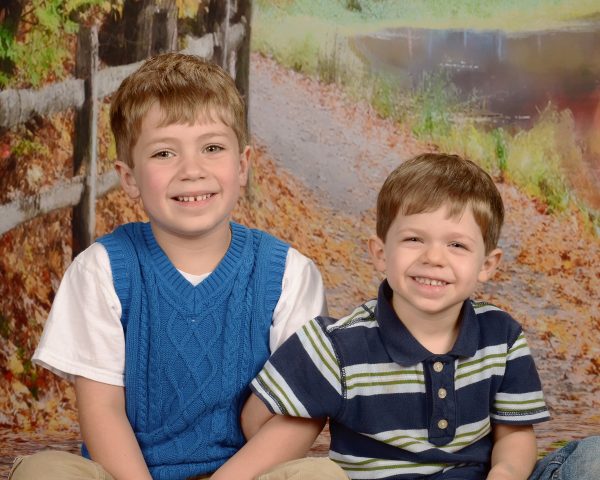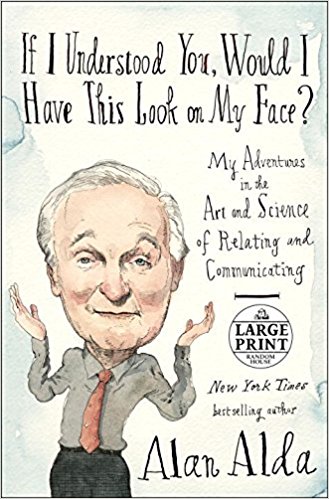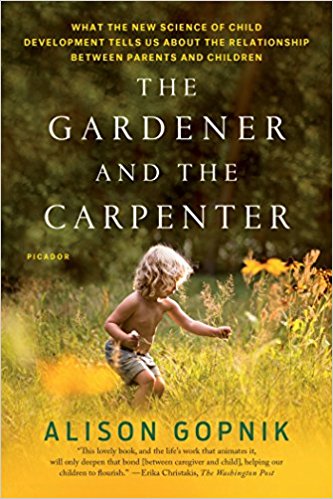I was sad when I found out all my children were going to be boys. Boys are great (and mine are particularly gorgeous, talented, and charming; see below) but I felt like I had all this hard-won-girl-wisdom to pass down. I had so many ideas about how to help a little girl become an amazing woman, and I hardly knew a thing about the minds and lives of little boys. But then I heard a depressing and relieving bit of wisdom from my favorite philosopher, Alain de Botton: one of the great tragedies of being a parent is that you can’t actually pass down any wisdom. The things you had to learn the hard way can’t be transferred to your children. You can’t spare them all the hurt and suffering you went through. The kids have to make the same mistakes—and different ones—and learn the hard way themselves. The best you can do is be a gardener, and create a rich and relatively safe environment for them to grow in.
Teaching improv is similar. I can’t teach you what to say or do in a scene; if I wanted to, I would write it down and it would be a play. You have to learn how to improvise, essentially, on your own. I can only try to create a safe environment for you to play in, make mistakes, try stuff out, get feedback, and build your own tools and skills.
This leads me to some new thoughts I’ve had around learning and education. What is teachable and what isn’t? Does one person really teach another person anything, or do you simply provide environments and experiences that they may or may not learn from? And if that’s true, what kind of school is best?
Picking a preschool for my kids felt impossible. Each website I browsed, each teaching philosophy I read, utterly convinced me that this was the One True School for my kids. Words like “hands-on activities,” “social and emotional learning,” or “science and technology preparing kids for the future,” accompanied by adorable photos of happy kids, colorful projects, and well-coiffed teachers, made a decision even more impossible. Even seemingly opposing alternatives were both appealing: “Structured and disciplined”? Well, my kids need that! “Arts and creativity”? Oh, my guys would thrive there!
So, how did I choose? Well, I remember the moment when I finally settled on their preschool, our now beloved First English Lutheran Child Development Center, a small, older school tucked away in a north campus church. I asked the director what their teaching philosophy is. She said something like: “We get to know your kid, and build a strong attachment with them. And that relationship is where the learning comes from.”
I had never heard that answer before, but I was sold right then and there. That’s exactly what I wanted. I mean, STEM is great. Montessori rocks. But what I think little ones (and big ones, too) need the most is solid relationships. That way the child feels safe enough to explore and relaxed enough to learn. And the teacher knows the child well enough to adapt the lessons to the child’s needs and interests. Many learning strategies can work when built on a strong teacher-student relationship.
It’s like teachers are first relating to students, then teaching them. I’ve been thinking a lot about the word “relating” lately. It began when I started reading Alan Alda’s latest book, If I Understood You, Would I Have This Look on My Face?: My Adventures in the Art and Science of Relating and Communicating. When I picked it up, I wondered why a book on communication would have such a long and weird title. One of Alan’s main philosophies is “distilling your message” down to its essential meaning. But as I read the book (which is fantastic by the way) I realized that every word in the title was important. Although I’ve been billing what I teach as “communication skills”—or more recently, “audience-centered communication”—what I’m actually teaching is relating, which is kind of a funny word.
When someone wants to learn communication skills, they are usually interested in 1) what they should say and 2) how they should say it so they can 3) get people to do what they want. It might be somewhat disappointing to my students that I don’t have a script for that. Instead I’m teaching a much more fluid skill set of presence, listening, connection, blending and distilling. Those methods, I believe, will naturally lead you to say the right thing at the perfect moment to a given audience. I’m actually teaching how to relate to people, whether one-on-one, in a meeting, or on stage. That’s why there’s no one-size-fits-all solution. But it’s also why it’s such a rewarding technique.
Relating is a two-way communication. Both parties are sharing, both parties are listening, both parties are learning.
No surprise, this applies to parenting as well. In her book The Gardener and the Carpenter, Alison Gopnik explains that although the word “parent” has been around for ages, the word “parenting” emerged recently, in the 1970s. Before that, you didn’t “parent” your kids any more than you “wife” your husband. Parent is an identity, not a job.
When we get a job, we learn how to do it properly, follow the rules, and be rewarded with a positive, predictable outcome. That is the “Carpenter” technique. And in modern times, when many people haven’t lived around children since they were kids themselves, this workman-like approach seems intuitive. I’m going to figure out this parenting thing, study hard, do the work, and get a great kid out of it.
But being a parent is nothing like that. (It would be the suckiest job in the world, as evidenced by this heartwarming and totally sexist American Greetings video from 2014.) The word “parenting,” like the word “adulting,” implies something effortful and inauthentic, which is not how I want to be as a parent. I don’t treat it like a job. I treat is like a relationship. I’m in a relationship with my kids. I’m their mom. Not because I’m gunning for a certain outcome, but because I made them and I love them. And yeah, right now there’s a lot of physical work in being a parent, although much less than there was a few years ago. And yeah, it’s not a 50-50 relationship in terms of power or effort. But that’s secondary to the relationship. And a like all deep relationships, me and my kids are figuring it out as we go, without any huge goals besides being together and learning about each other and ourselves.
So as you head in to the holidays, and many of you are seeing your loved ones. When you think about all the time and money and work it takes to be together–it doesn’t seem to add up. Maybe you can reframe it, focusing on the relationship. And think less about what you want to say to them and what you want them to do, and more about how you can relate to them, in all the different ways people who love each other do.




